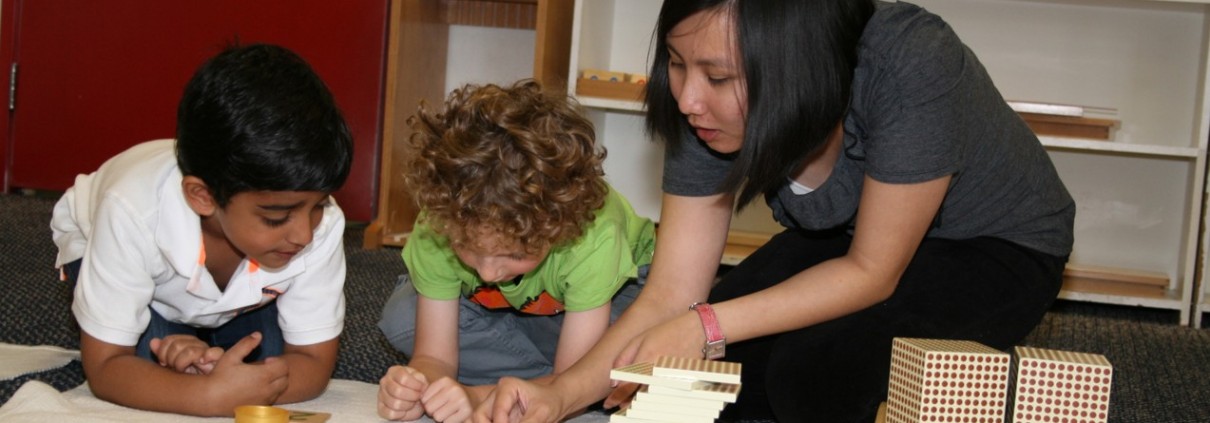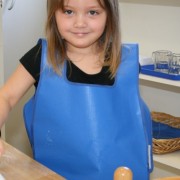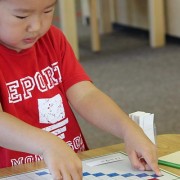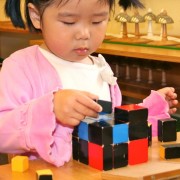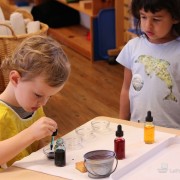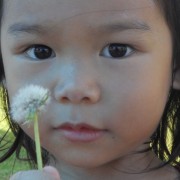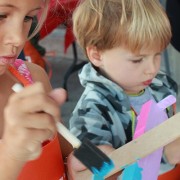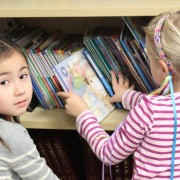Tiger Mom vs. Enjoying Childhood: A Choice you Don’t Have to Make
A recent article excerpting a chapter of Amy Chua’s book, Battle Hymn of the Tiger Mother, has sparked quite a debate on parenting and educational choices.
Ms. Chua and her supporters argue that it takes an authoritarian approach to parenting to prepare children for successful adulthood in today’s competitive world. For instance, Ms. Chua writes “My Western friends who consider themselves strict make their children practice their instruments 30 minutes every day. An hour at most. For a Chinese mother, the first hour is the easy part. It’s hours two and three that get tough.” Ms. Chua emphasizes that she used “coercion” liberally in her parenting style. She argues that her daughters were not motivated themselves, and so she had no choice—there was no other way to get them to succeed but to force them.
Opposing this approach are parents and educators who believe childhood should be an idyllic time for carefree, spontaneous exploration, free of adult interference and direction. Let kids be kids, they advocate.
This split goes much beyond parenting choices; it shapes much of the debate on educational methods in schools. Should children be taught lecture-style and held accountable by standardized tests, to ensure they master the “common knowledge” they need to succeed later in life—or should schools be places for joyous, child-led exploration, even at the cost of sacrificing proper grammar, mental math skills, and even a basic understanding of the facts of science and history?
Fortunately, it doesn’t have to be either-or. In reality, the best learning happens when children are personally interested in challenging content. The best teaching combines a thoughtfully structured curriculum (defined and developed by adults!) with an approach that motivates students by relating the content of instruction to a child’s existing interests and values and allowing active engagement, so that the process of learning itself is enjoyable for the student.
This approach is what we mean by Knowledge for Life at LePort. You can see it in a Montessori preschool classroom, where 4-year-olds eagerly count and practice writing numbers with the Montessori math materials. It’s visible in Montessori elementary science, when students love to solve the puzzle of a magically moving lamp, and discover in the process that heated air rises. You experience it in middle school history, where students get tears in their eyes reading about a young Roman’s loss of his family in England during the decline of the Roman Empire.
A recent editorial in the Wall Street Journal asserts that “tragically, there is a real conflict within childhood between preparation for adulthood and the enjoyment of the gifts of youth.” We simply could not disagree more. We have seen the opposite too often and too clearly: children who are internally motivated by a love of doing, and so relish the process of learning. The real conflict is not between preparing for adulthood or enjoying childhood, it’s just that it is harder to do the former in a way that is consistent with the latter. To inspire a genuine love of learning, whether as a parent or a teacher, requires working harder, thinking longer, and exercising more creativity. It is much easier to just force children to drill for hours on end.
We believe the harder path in this case is the right path. Parents and educators should nurture the curiosity, joyfulness and enthusiasm that almost every child possesses in his early years. That’s what we strive to do at LePort. When our eighth grade graduates go on to lead successful lives in high school and beyond, it is not because their parents and teachers forced them. It’s because we helped them perpetuate that natural zest for life they possessed as toddlers. For them as for us, happiness and success aren’t opposites. They are the Ying and Yang of living life to the fullest.
Heike Larson

